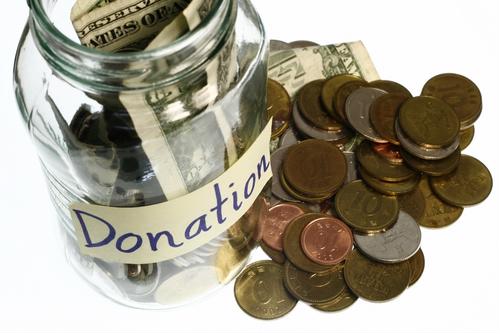As super PACs have grown to hold a certain importance in presidential campaigns, it seemed traditional fundraising would be placed on the back burner, but from Bernie Sanders, I-Vt., to Gov. Scott Walker of Wisconsin, candidates' experiences thus far illustrate how important it is to have a network of small donors.
On Sept. 21, 2015, Walker, an early frontrunner for the Republican nomination, ended his presidential campaign. He had, to this point, been one of the more successful fundraisers in the race, with a reliable group of donors holding millions of dollars backing his bid for the White House, according to The New York Times. However, the money collected by the super PACs supporting Walker could not be put toward a number of vital expenses, the sort traditionally paid by a strong network of small donors. And as Walker announced the end of his campaign, two other candidates on either side of the race continued theirs without the help of super PACs and billionaire donors.
As super PAC funds grew, campaign finances dwindled for Walker
Backed by the Unintimidated PAC – which was set to raise $40 million through the end of the year – Walker appeared on solid ground though his campaign committee's finances were running dry and his standing in polls plummeting. This was because, while the unlimited donations coming in through super PACs could prove helpful and have been a massive boon for the majority of candidates in the race, that money cannot pay for things such as "rent, phone bills, salaries, airfares or ballot access fees," according to The New York Times.
"Republican candidates themselves have amassed about $78.4 million."
Republican super PACs and other similar organizations have raised close to $256 million, the news outlet reported, while candidates themselves have amassed far less, about $78.4 million. Traditional campaign financing relies donations in the form of checks that are limited to $2,700, from a vast network of reliable donors. Without these supporters a campaign can only go so far, something that Walker seems to have recently learned.
"You know how hard it is to raise this money at $2,700 apiece?" Anthony Scaramucci, a New York financial executive and former national finance chairman for Walker, told The New York Times. "Unless you have the right messaging and appeal, you won't get the smaller donors. You have to be able to go up-range into the big donor community and downrange into the smaller donor community."
Several expenses that super PACs are barred from funding ballooned just too much for his campaign to afford. Politico noted that Walker's staff had grew to 90 people, for example. Unfortunately for the Wisconsin governor, as his polling numbers fell, donors began to back off, and his campaign funds simply dried up as the money stopped coming in.
Walker's campaign committee finances contrast with those of Trump, Sanders
As he bowed out of the race, Walker encouraged other Republicans to form a united front against one of the few candidates who is running without the assistance of super PACs: Donald Trump, the real estate mogul turned presidential hopeful who has taken the race by storm.
Trump has self-funded his campaign so far, though there are signs that allies of his are raising money. For example, CNN reported that he recently attended a fundraiser – as a guest, his campaign spokeswoman clarified – that collected donations for both a super PAC and a nonprofit. Still, Trump has touted the fact that he is not taking large donations, intends to reform campaign financing and is running a "no strings attached" campaign.

Meanwhile, on the other side of the race, Bernie Sanders has built-up his own campaign war chest solely through his network of donors limited to $2,700 checks. However, a super PAC has been created for him as well. An organization called Americans Socially United has been raising money for the self-described "socialist," though he has reportedly requested that the super PAC stop, according to Vermont publication Seven Days.
"While Bernie 2016 is grateful for your enthusiasm, we are compelled to inform you that your current efforts are illegal and are causing harmful confusion for supporters of Senator Sanders' campaign," stated a letter to the super PAC's founder, Cary Lee Peterson, according to the news source.
With so much talk about campaign finance thus far in the 2016 election cycle, – including Democrat Hilary Clinton's proposal to reign in anonymous, unlimited donations should she be elected – Walker's announcement brings to light yet another day of modern politics. Though super PACs are typically deemed necessary to win – part of the reason Sanders isn't expected to take the race is his minimal fundraising relative to Clinton's – traditional donor networks are still very important.

